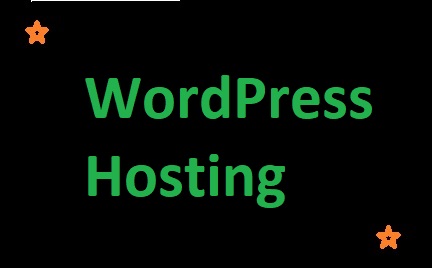WordPress Hosting
Introduction
WordPress has become the go-to platform for individuals and businesses looking to create a professional and functional website. However, choosing the right hosting provider for your WordPress site is crucial for its performance, security, and overall success. In this guide, we will delve into the world of WordPress hosting, exploring the different types of hosting, key features to look for in a hosting provider, and tips for optimizing your WordPress site for speed and performance.
Types of WordPress Hosting
- Shared Hosting
Shared hosting is the most basic and affordable type of hosting, where multiple websites share the resources of a single server. While shared hosting is a cost-effective option, it may not provide the best performance for high-traffic WordPress sites, as the resources are distributed among multiple users.
- VPS Hosting
VPS (Virtual Private Server) hosting offers a more scalable and reliable solution compared to shared hosting. With VPS hosting, your website is hosted on a virtual server that mimics a dedicated server, giving you more control over your resources and better performance.
- Dedicated Hosting
Dedicated hosting provides you with a physical server dedicated solely to your website. This type of hosting offers the highest level of performance, security, and customization options, making it ideal for large businesses and high-traffic websites.
- Managed WordPress Hosting
Managed WordPress hosting is a specialized hosting solution designed specifically for WordPress sites. With managed hosting, the hosting provider takes care of all the technical aspects of hosting your site, including security, updates, and backups, allowing you to focus on creating content and growing your business.
Key Features of WordPress Hosting
- Performance
Performance is crucial for the success of your WordPress site, as slow loading times can lead to higher bounce rates and lower search engine rankings. Look for a hosting provider that offers SSD storage, CDN integration, and caching solutions to ensure fast and reliable performance.
- Security
Security is paramount when hosting a WordPress site, as it is a popular target for hackers and malicious attacks. Choose a hosting provider that offers robust security features such as firewalls, malware scanning, and SSL certificates to protect your site and data.
- Scalability
Scalability is important for growing WordPress sites, as you may need to upgrade your hosting plan as your traffic and resource needs increase. Look for a hosting provider that offers scalable hosting solutions, such as VPS or dedicated hosting, to accommodate your growing needs.
- Support
Support is essential when hosting a WordPress site, as you may encounter technical issues that require immediate attention. Choose a hosting provider that offers 24/7 support via phone, email, or live chat to ensure that help is available whenever you need it.
Optimizing Your WordPress Site
- Choose a Lightweight Theme
When selecting a theme for your WordPress site, choose one that is lightweight and optimized for speed. Avoid themes with excessive features and scripts, as they can slow down your site’s performance.
- Use a Caching Plugin
Caching plugins can help improve the speed and performance of your WordPress site by storing static versions of your pages and serving them to visitors. Popular caching plugins include W3 Total Cache and WP Super Cache.
- Optimize Images
Images can significantly impact your site’s loading times, so it’s important to optimize them for the web. Use image compression tools such as Smush or Imagify to reduce the file size of your images without compromising quality.
- Minimize Plugins
While plugins can add functionality to your WordPress site, using too many plugins can slow down your site’s performance. Keep your plugin count to a minimum and regularly review and deactivate any plugins that are not essential.
When it comes to choosing the best web hosting for WordPress, several factors should be considered, including performance, reliability, security, support, and pricing. Here are some of the top web hosting providers known for their excellent WordPress hosting services:
- Bluehost: Bluehost is one of the officially recommended hosting providers by WordPress.org. They offer a range of hosting plans specifically optimized for WordPress, including shared hosting, managed WordPress hosting, and WooCommerce hosting. Bluehost is known for its reliability, performance, and 24/7 customer support.
- SiteGround: SiteGround is another popular choice for WordPress hosting, offering managed WordPress hosting plans that come with features like automated updates, daily backups, and advanced security. SiteGround is known for its excellent customer support and fast loading times.
- WP Engine: WP Engine is a premium managed WordPress hosting provider known for its high-performance hosting environment and top-notch security features. WP Engine offers a range of plans suitable for small blogs to large enterprise websites.
- Kinsta: Kinsta is a managed WordPress hosting provider that uses Google Cloud Platform to host websites. They offer a user-friendly dashboard, automatic backups, and excellent performance. Kinsta is known for its scalability and developer-friendly features.
- DreamHost: DreamHost offers a range of hosting plans, including shared hosting, managed WordPress hosting, and VPS hosting. They provide a 100% uptime guarantee and 24/7 customer support. DreamHost is also known for its commitment to sustainability, using renewable energy to power its data centers.
- HostGator: HostGator offers a range of hosting plans, including shared hosting, VPS hosting, and dedicated hosting. They provide one-click WordPress installation, 24/7 customer support, and a 45-day money-back guarantee.
- A2 Hosting: A2 Hosting offers fast and reliable WordPress hosting with features like free SSL certificates, SSD storage, and automatic backups. They also provide 24/7 customer support and a 30-day money-back guarantee.
When choosing a web hosting provider for WordPress, consider your website’s specific needs, such as traffic volume, storage requirements, and budget, to determine the best option for you. Additionally, read reviews and compare features to find the hosting provider that best suits your requirements.
